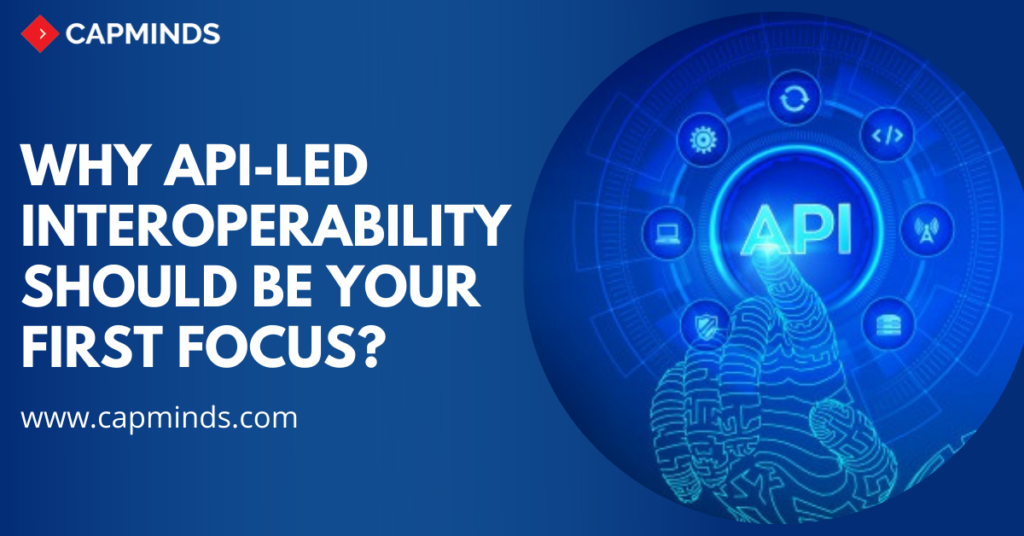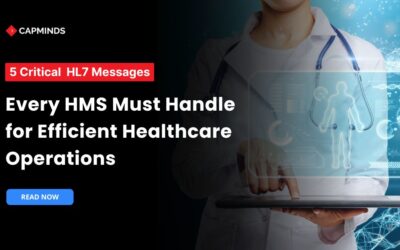Why API-Led Interoperability Should Be Your First Focus?
As
the adoption of new technologies and tools is rapidly increased in today’s
healthcare industry, interoperability is now on track and it needs more
important for the success of any healthcare practice. Today, there is a growing
need for more effective healthcare information sharing between care settings,
organizations, and professionals to optimize patient outcomes and the quality
of care delivered.
The
Centers for Medicare and Medic-aid Services (CMS) aims to address the issues
raised after the COVID-19 with CMS-9115-F, a directive that offers patients
greater secure access to their healthcare data. With an implementation deadline
of July 1, 2021, the standard will reduce the problems across the U.S
healthcare system, enabling patients as well as expanding innovation in
healthcare delivery.
Patients are the first ones to benefits more from interoperability. If the healthcare data access has been made easier means then the payers too can make better decisions regarding their care – leading to a healthier population across the U.S. These four final CMS data interoperability guidelines shows Why API-Led interoperability should be your first focus and how it will digitally transform healthcare delivery.
RELATED: UNDERSTANDING ONC INTEROPERABILITY RULE FOR PROVIDERS
Empowers
Faster Decision-Making Across Stakeholders
A
huge factor in the absence of coordination across partners can be credited to
the medical services industry’s information silos. Numerous medical clinics and
suppliers are tested when endeavoring to give comprehensive care to patients
because significant information is put away in various areas, from emergency
clinics to SMART on FHIR applications and medical services IoT wearables.
Regulations,
for example, ONC’s Cures Act Final Rule takes into account the protected
admittance and utilization of electronic health data while the CMS rule puts
the patient first by permitting them to utilize their information in the most
ideal way. These guidelines are planned given a similar reason – for the safe
healthcare information sharing between patients, specialists, and healthcare
systems.
Now, the challenge in data interoperability is the current absence of a proficient way for documenting huge measures of information, which can hinder profitability and work processes in a healthcare system. Then what’s the right solution to overcome the interoperability challenges? An integrated healthcare system that catches examines and shares important information is essential in offering patients the most ideal treatments on time.
Under
the CMS rule, payers are needed to carry out and keep a protected, standard-based
API that permits patients to effectively get to their cases and view data and
costs accessible through third party utilization of their decision. Moving
towards interoperability in healthcare will make a complete, longitudinal
perspective on a patient’s medical history and patient health information. As a
result, every individual will have a more comprehensive understanding of their
healthcare system, enabling them to make better healthcare choices.
Offers
Huge Opportunities To Create New Healthcare Business Models
The API-led interoperability needed for this compliance likewise presents wonderful opportunities to make new plans of action by bundling information and administrations as API items that can be shared and adapted. The CMS rules expect payers to make provider directory information openly accessible through a standard-based API.
The
expansive accessibility of this information stands to support advancement by
permitting third-party application developers to get to data so they can make
benefits that help patients discover suppliers for care and treatment, and help
clinicians, find different suppliers for care coordination.
An API developer portal supports organizations and application developers to buy into, test, and evaluate APIs. This will be the establishment of medical care API commercial centers, where organizations can productize APIs that follow the standard just as other APIs — and adapt some of them.
RELATED: 6 THINGS TO DO IMMEDIATELY ABOUT INTEROPERABILITY IN HEALTHCARE
Strengthens
Privacy And Security For Patients
The
move toward public APIs and third-party applications places the onus on
cutting-edge security in an industry, where security and protection are now
core challenges for achieving interoperability in healthcare. Patient
protection and security should not be undermined when undertaking information
sharing practices and approaches. Healthcare identity systems should have the
option to deal with API security through some protocols, like OpenID Connect.
By advancing interoperability in healthcare, chief information security officers (CISOs) can easily recognize clients, track access, and all the more successfully oversee access rights. Secure, interoperable frameworks give a superior thought of where basic patient information is found and who can get to it. Using multi-factor verification, information encryption, and good employee training is essential for secure healthcare information exchange.
RELATED: ACHIEVING HEALTHCARE INTEROPERABILITY: 3 BEST PRACTICES
Streamlines
Compliance With High Regulatory Standards
API-Led
interoperability empowers compliance across the medical practices, permitting
the staff to focus more on growing challenges related to offering quality
patient treatment. What’s more, with more standards sure to emerge in the
future of the healthcare industry, the new regulatory standards for
interoperability will be helpful for healthcare systems to remain compliant.
The healthcare groups should recognize and approve information sources,
incorporate with source frameworks, and uncover FHIR resources as APIs to
finish the project on time.
Final
Thoughts
Providing secure access to patient healthcare information is an effective way for preventing medical errors and improving patient care. The right key to achieve this is based on the technology selection. The healthcare organizations that invest in an API-led interoperability system will drive digital healthcare innovation, cut down expenses and provide quality healthcare to patients.
Ready to explore more about interoperability solutions? Schedule a demo with CapMinds to boost your practice productivity and drive towards an advanced digital healthcare system.

 Author: Pandi Paramasivan
Author: Pandi Paramasivan


